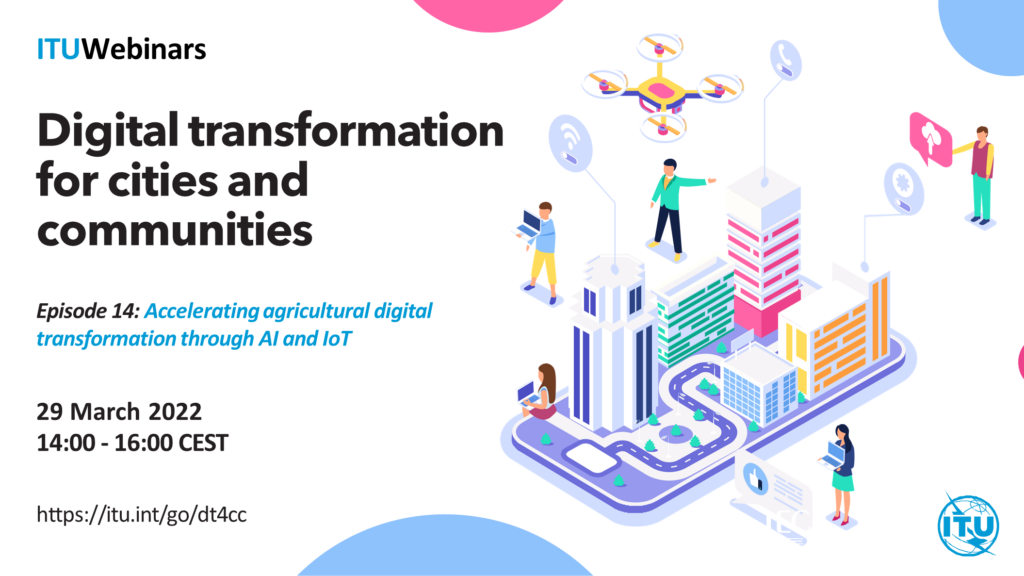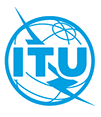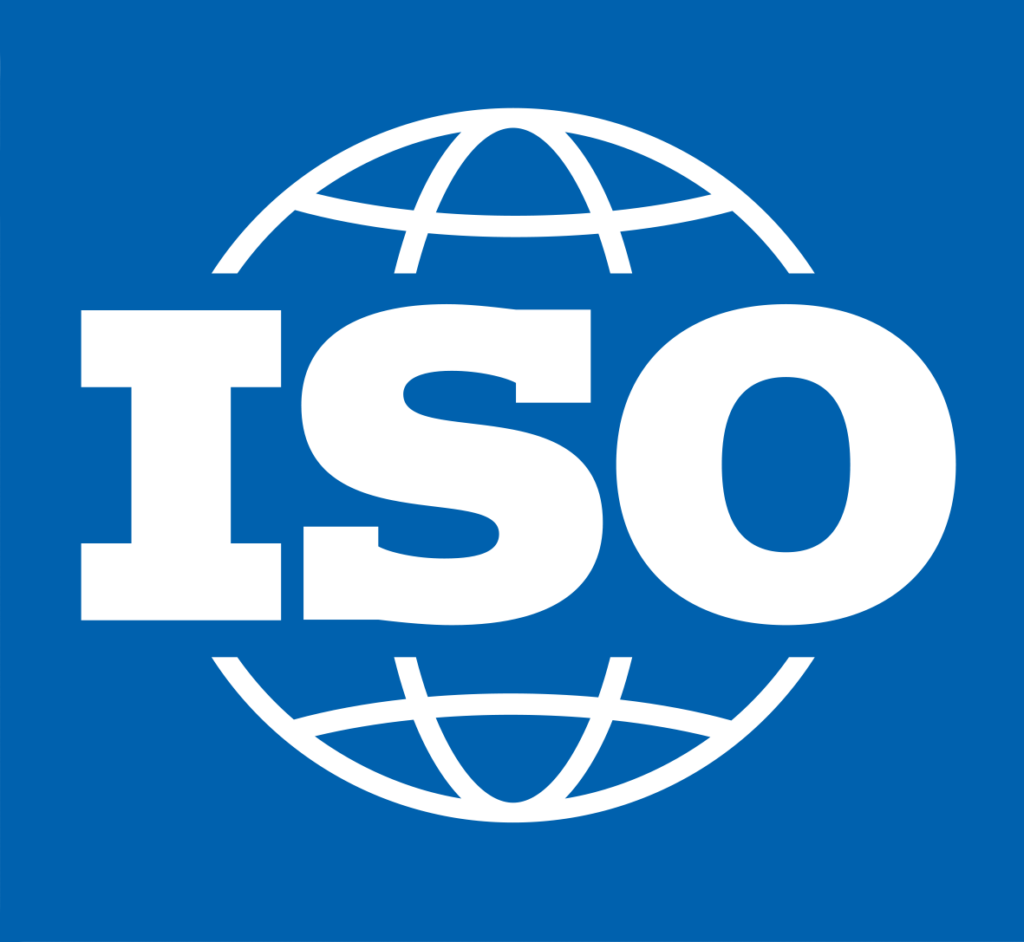Episode #14: Accelerating agricultural digital transformation through AI and IoT

This webinar was part of ITU’s webinar series on Digital transformation for cities and communities.
Episode 14 was jointly co-organized by the International Telecommunication Union (ITU), Food and Agriculture Organization (FAO) and International Organization for Standardization (ISO).
The agricultural sector is one of the largest in the world, with an estimated global value of USD 2.4 trillion. Farming provides jobs for 1.3 billion people – 19% of the world’s population. However, to meet the needs of a rising global population that is expected to reach 9.7 billion people by the year 2050, global food production will need to be expedited by an estimated 70%.
This necessitates the adoption of emerging technologies including Artificial Intelligence (AI), Internet of Things (IoT), robotics, Big data, augmented reality, sensors, and drones for the control and optimization of agricultural production processes, supply chains and food systems. The incorporation and subsequent combination of these technologies have already started to radically transform agricultural domain and have resulted in the unfolding of a new concept known as “digital agriculture”.
The application of “digital agriculture” is on the rise, with its global market estimated to reach over USD 23 billion by 2022 – accounting for an average annual growth of nearly 20%. This concept leverages disruptive technologies to increase crop yield, maximize resource efficiency and strengthen the overall supply chains. Digital agriculture encompasses precision agriculture or precision farming and also incorporates techniques such as controlled-environment agriculture, vertical farming and smart greenhouses.
In this context of digital agriculture, this webinar episode delved into the various aspects of leveraging AI and IoT in accelerating digital transformation for agricultural production processes, and examined the current standardization terrain related to the agricultural sphere.
Participation was open to ITU Member States, Sector Members, Associates and Academic Institutions and to any individual from a country that is a member of ITU who wished to contribute to the work. This included individuals who are also members of international, regional and national organizations. The registration to the event was mandatory.
Note: The views and opinions expressed by the presenters during this event are solely those of the individual speakers and do not necessarily represent, reflect, or constitute the official stance, policy, or position of the International Telecommunication Union (ITU) or its secretariat.
Programme
14:00 – 14:15 Opening Remarks
- Chaesub Lee, Director, Telecommunication Standardization Bureau, ITU
- Johannes Lehmann, Head of Business Development Smart Farming, German Institute for Standardization, ISO Strategic Advisory Group on Smart Farming Convenor
- Dejan Jakovljevic, CIO and Director, Digitalization and Informatics Division, Food and Agriculture Organization (FAO)
14:15 – 14:20 Keynote Speech
- R. Andres Ferreyra, Data Asset Manager, Syngenta Digital, ISO Strategic Advisory Group on Smart Farming Convenor [Presentation]
Questions & Answers
14:20 – 15:00 Session 1: Digital Agriculture and Sustainable Food Systems: Trends and Opportunities
Moderator: Ramy Ahmed Fathy, Director, Digital Services Planning and Risk Assessment, National Telecom Regulatory Authority, Egypt
- Sushil Kumar, Deputy Director General (IoT), Telecommunication Engineering Centre, Department of Telecommunications, Government of India [Presentation]
- Kenneth Irons, Chairman, AgriTech New Zealand, New Zealand [Presentation]
- Robert Stefanski, Head of the Applied Climate Services Division, World Meteorological Organization (WMO) [Presentation]
Questions & Answers
15:00 – 15:55 Session 2: Bridging the Divide in Data-Driven Agriculture: Leveraging International Standards for Digital Transformation
Moderator: Sebastian Bosse, Head of Interactive & Cognitive Systems Group, Fraunhofer HHI
- Jörg Dörr, Professor for Digital Farming at Technical University of Kaiserslautern, Germany | Extended Institute Management and Program Manager Smart Farming at Fraunhofer IESE, Germany: [Presentation]
- Drake Patrick Mirembe, ICT& Management Consultant, Innovations & Cyber Security Specialist, Data Scientist, Business & Technology Entrepreneur, Uganda: [Presentation]
- Jim Wilson, Chief Technology Officer, AgGateway: [Presentation]
Questions & Answers
15:55 – 16:00 Wrap-up and closing remarks
- Bilel Jamoussi, Chief of Study Groups, TSB, ITU


